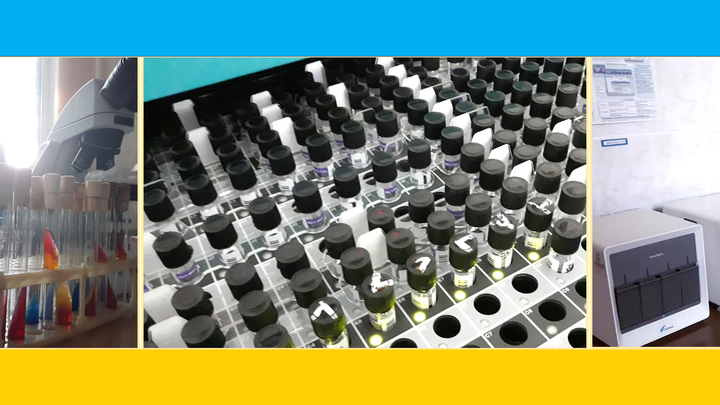
Generator for tuberculosis lab, Odessa, Ukraine
Donation protected
Why do we engage in the generator for the tuberculosis diagnostic laboratory in Odessa, Ukraine?
We will support everyday routine diagnostic of tuberculosis and HIV - this fundraising is for medical purposes - not for research.
This fundraising has one clear goal - we collect funding for an electrical generator that would support the work of main tuberculosis and HIV diagnostic laboratory in Odessa region, Ukraine.
We are a network of European researchers and members of an EU research project dedicated to tuberculosis diagnosis and treatment: www.tbnet.eu and www.innova4tb.com. My name is Olena Rzhepishevska and I am the vice-chair of TBnet and the board member of INNOVA4TB project.
We collaborate with a Regional Tuberculosis Hospital presently called "Center for Socially Significant Diseases" in Odessa, Ukraine. This Center is leading the treatment and diagnostic of tuberculosis, HIV and viral hepatitis in a large Ukrainian region with over 2 million inhabitants and over 100 000 people internally displaced due to the Russian war against Ukraine. The front line in the south of Ukraine is close.

Figure 1. Odessa Region, Ukraine with over 2 million inhabitants and over 100 000 internally displaced people
Tuberculosis and drug-resistant tuberculosis as well as HIV are prevalent infectious diseases in Ukraine. Up to 30 000 people are diagnosed and receive tuberculosis treatment every year. As for HIV, 200 000 people are estimated to live with HIV in Ukraine.
The first step to the treatment and cure is diagnosis. Before starting the treatment for tuberculosis, which takes at least six months of a regimen with several antibiotics, it is important to know for sure that the person has tuberculosis. Similarly with HIV, before starting the treatment for HIV that is life-saving but has to be taken for the whole life, it is important to know for sure that the person has HIV.
The laboratory of the Center for Socially Significant Diseases is an intensive workplace that processes samples from people of Odessa region who showed signs or symptoms of tuberculosis, HIV or hepatitis and other life-threatening infections.
The laboratory has modern equipment for the diagnostic of these infectious - including sophisticated incubators with growth monitoring of the bacteria and equipment for rapid molecular diagnostics. All this equipment is powered by electricity. Even a microscope cannot be operated without electricity.
Currently, due to the war and the Russian attacks on the electricity infrastructure, the whole Odessa Region including the diagnostic laboratory is experiencing power cuts often and for long periods.
Without electricity, all diagnostic equipment is just standing dead.

Figure 2. Sputum samples for tuberculosis investigation in a modern BACTEC incubator.
The modern BACTEC incubators when exposed to power cuts will not restart properly and hundreds of clinical samples will have to be taken again from the people and the diagnostic process has to be started from scratch. The fast molecular diagnostic will not work either because the machine that is used for this is not working without electricity. This means that the patients will have to wait for months for their diagnosis and treatment and the rate of incorrect diagnosis will increase. This means that some of the patients can die while waiting.

Figure 3. Ventilated hoods for safe work with tuberculosis bacteria
The ventilated hoods that are used to protect the lab staff from inhaling dangerous bacteria do not work without electricity, meaning that the staff may work with a severe health risk of being exposed to a dangerous infection.
Understanding the situation that is developing, we, European researchers and clinicians, in cooperation with Ukrainian colleagues decided to collect funding for an electrical generator. The Center for Socially Significant Diseases has calculated that a generator with at least 50kW will help to support the work of the laboratory. The market price in Ukraine for the cheapest generator in this class is 17 000 US dollars.
The letter from the leadership of the Center is below. Please support our initiative and donate to the generator.
If we collect more funding than is targeted we will either buy a more robust generator or use the excess of the funding for diesel fuel. The fuel consumption of this device is over 10 liters per hour which builds additional costs.

Figure 4. The letter from the leadership of the Center for Socially Significant Diseases (the whole letter can be sent on demand)
Organizer
Olena Rzhepishevska
Organizer
Umeå, AC, Sweden, AC